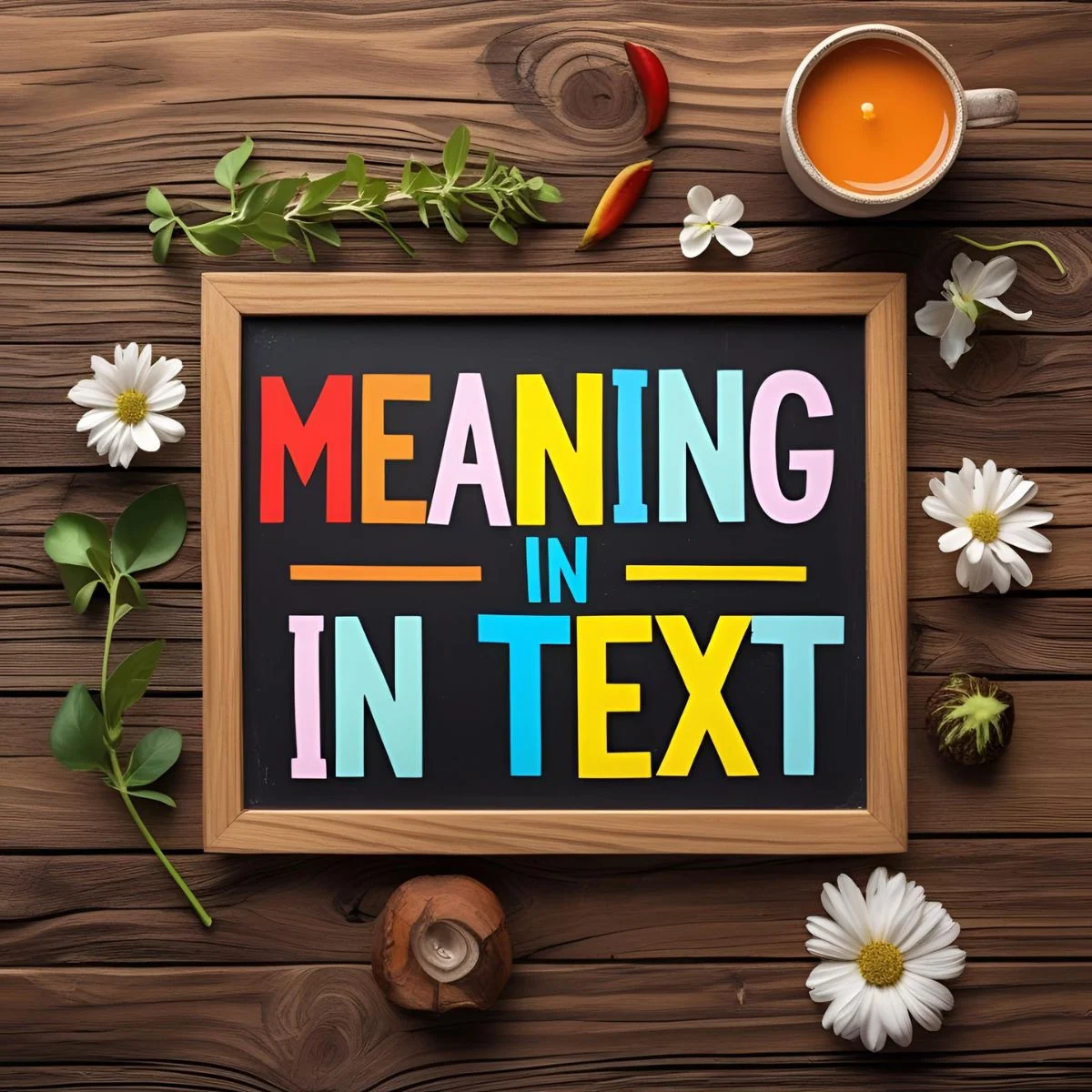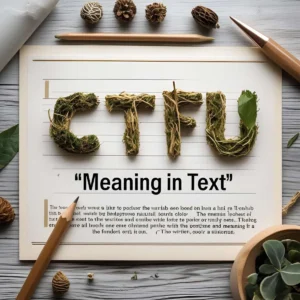Ever come across GTFO in a text and wondered what’s up? 🤔 This sharp acronym is a standout in today’s digital chats, popping up in texts, gaming, and social media. Whether it’s a playful nudge or a heated moment, GTFO carries a strong vibe. Knowing its meaning helps you navigate conversations, avoid awkward moments, and respond with confidence. From casual chats to online gaming battles, GTFO adds a punch to communication. In this guide, we’ll unpack what GTFO means, its origins, and how to use it wisely. Let’s jump in and decode GTFO! 🚀
Definition & Meaning
GTFO stands for Get The F* Out**, a blunt phrase used to tell someone to leave or express disbelief. It’s often softened in casual settings but can be intense depending on context.
Key Points:
- GTFO is a direct, sometimes harsh way to say “leave” or “go away.”
- In friendly chats, it can be playful or sarcastic, not always literal.
- It’s most common in informal settings like gaming or texting among close friends.
Examples:
- Serious Use:
- Friend 1: “Why’s that guy still here? 😒”
- Friend 2: “Tell him to GTFO! 🚪”
- Playful Use:
- Friend 1: “I ate your last slice of pizza! 😜”
- Friend 2: “GTFO, you didn’t! 😂”
Context decides if GTFO is a joke or a serious demand!
Background & History
GTFO comes from internet and gaming culture:
- Origins: The phrase “get the f*** out” has been around in spoken English for decades, often as a rude way to tell someone to leave. It became an acronym in the early 2000s with the rise of online forums and gaming chats.
- Evolution: GTFO gained traction in gaming communities, especially in multiplayer games like Call of Duty or World of Warcraft, where players used it to express frustration or humor. Social media platforms like Reddit and Twitter helped spread it further.
Key Points:
- GTFO started as a blunt spoken phrase but became a popular texting acronym in the 2000s 📱.
- It’s now a staple in gaming and casual online spaces 🌐.
- Its tone varies from aggressive to playful based on context.
Usage in Various Contexts
GTFO shows up in different settings, each with its own flavor:
- Texting 📲:
- Used to jokingly or seriously tell someone to back off.
- Example:
- Friend: “I’m crashing your movie night! 🎥”
- You: “GTFO, it’s invite-only! 😄”
- Social Media 🐦:
- Often seen in comments or posts for humor or shock value.
- Example:
- Post: “Someone tried to scam me today! 😡”
- Reply: “GTFO, that’s wild! 😲”
- Gaming 🎮:
- Common in competitive games to express frustration or banter.
- Example:
- Gamer 1: “That player keeps camping! 😤”
- Gamer 2: “Tell them to GTFO the spot! ⚡”
- Casual Conversations 🗣️:
- Used playfully among friends or seriously in heated moments.
- Example:
- Friend: “I lost your favorite hat! 😬”
- You: “GTFO, you better find it! 😅”
Key Point: Tone and context determine if GTFO is a joke or a serious push. 🔍
Common Misconceptions & Clarifications
GTFO can cause confusion due to its strong tone:
- Misconception: GTFO is always rude or aggressive.
- Clarification: Among friends or in gaming, it’s often playful or sarcastic.
- Misconception: GTFO is okay in all settings.
- Clarification: It’s highly informal and inappropriate for professional or sensitive contexts.
- Misconception: GTFO has multiple meanings like other acronyms.
- Clarification: It’s almost always “Get The F*** Out,” with rare variations like “Get That Food Out” in niche foodie chats.
Key Point: Use GTFO carefully to avoid sounding harsh or offending someone. 😬 For example, saying “GTFO” in a work chat could come off as unprofessional.
Similar Terms & Alternatives
Here are alternatives to GTFO for different vibes:
- Polite Alternatives:
- Leave
- Go away
- Please exit
- Casual Alternatives:
- Bounce
- Scram
- Get lost
- Playful Alternatives:
- Skedaddle
- Take a hike
Comparison Table:
| Term | Meaning | Best Used In |
|---|---|---|
| GTFO | Get The F*** Out | Informal, gaming, close friends |
| Scram | Leave quickly | Casual, less harsh |
| Leave | Polite request to go | Formal or neutral settings |
| Skedaddle | Playful way to say leave | Fun, friendly chats |
Key Point: Choose alternatives like “leave” or “scram” for softer or more formal situations. ✅
How to Respond to This Term
Your response to GTFO depends on the tone:
- Casual 😊:
- Example:
- Friend: “GTFO, you took my spot! 😄”
- You: “Haha, I’m staying right here! 😜”
- Example:
- Humorous 😂:
- Example:
- Friend: “GTFO with that bad joke! 😅”
- You: “Oh, you love my jokes! 😎”
- Example:
- Professional 💼:
- Example:
- Colleague: “GTFO, you finished the project already? 😲” (rare in work settings)
- You: “Haha, yep, it’s done! Let’s review it.”
- Example:
- Neutral 🔒:
- Example:
- Friend: “GTFO, you’re not coming? 🥳”
- You: “Nah, I’ll catch the next one! 😊”
- Example:
Key Point: Match the mood and keep it light unless the context is serious. 🧠
Regional or Cultural Differences
GTFO is used globally but varies slightly:
- Western Countries 🌎: Common in casual texting and gaming, often playful or blunt.
- Asia 🇯🇵: Popular in gaming communities, especially in English-speaking groups, but less common in local languages.
- Other Regions 🌍: Understood in online spaces, but its bluntness may not translate well in cultures valuing politeness.
Key Point: In polite cultures, GTFO might seem too direct, so use softer terms like “please leave.” 🌐
Comparison with Similar Terms
Here’s how GTFO compares to similar expressions:
| Term | Meaning | Key Difference |
|---|---|---|
| GTFO | Get The F*** Out | Blunt, informal, sometimes playful |
| Get Lost | Leave, less harsh | Softer, widely acceptable |
| Scram | Quick exit | Casual, less intense |
| Take a Hike | Playful way to say leave | Fun, not aggressive |
Key Point: GTFO is bolder than most alternatives, so use it with care. ✨
Usage in Online Communities & Dating Apps
GTFO shines online:
- Twitter/X 🐦: Used for humor or to call out bad takes.
- Example:
- Post: “GTFO with that awful opinion! 😤 #NoWay”
- Reply: “Haha, okay, I’ll rethink it! 😅”
- Example:
- Dating Apps 💘: Rare, but might appear in playful banter.
- Example:
- Bio: “Bad vibes? GTFO 😎.”
- Message: “Haha, only good vibes here! 😊”
- Example:
- Gaming Communities 🎮: Common for frustration or joking in competitive games.
- Example:
- Discord: “GTFO, stop stealing my kills! ⚡”
- Reply: “Chill, I’m just too good! 😜”
- Example:
Tips:
- On dating apps, keep GTFO light to avoid sounding harsh.
- In gaming, use it for banter but clarify if it’s serious to avoid tension. 🚀
Hidden or Offensive Meanings
GTFO can be tricky:
- Offensive Potential 😳: The “F” makes it vulgar, so it’s inappropriate in polite or professional settings.
- Context Matters: Playful among friends, but it can feel hostile to strangers or in sensitive situations.
- No Hidden Meanings: GTFO is straightforward, but its bluntness can offend if misused.
Key Point: Avoid GTFO in formal or unfamiliar settings to keep things friendly. 😊
Suitability for Professional Communication
GTFO is not suitable for formal settings:
- Too Vulgar 📝: The explicit language makes it inappropriate for emails or work chats.
- Risk of Offense: Can come off as rude or unprofessional, even if meant as a joke.
Alternatives:
- Instead of “GTFO,” say “please leave” or “step out.”
- For playful work banter, use “let’s move on” instead.
Key Point: Stick to polite, clear language in professional contexts. 💼
FAQs
- What does GTFO mean in texting? 🤔
- It stands for “Get The F*** Out,” meaning leave or go away.
- Is GTFO always rude? 😬
- Not always—among friends or in gaming, it can be playful or sarcastic.
- Can I use GTFO at work? 📧
- No, it’s too informal and vulgar. Use “please leave” or “exit.”
- How do I respond to GTFO? 💬
- Go casual (“Haha, I’m staying!”), humorous (“Ouch, my feelings!”), or neutral (“Alright, I’ll go!”).
- Is GTFO used differently globally? 🌍
- It’s common in English-speaking gaming and casual chats but may seem harsh in polite cultures.
- Does GTFO appear on dating apps? 💕
- Rarely, but if used, it’s usually playful. Respond lightly to keep the vibe fun.
- Can GTFO offend someone? 😳
- Yes, if used seriously or with strangers, due to its strong language.
Conclusion
GTFO is a bold acronym meaning Get The F* Out**, used to tell someone to leave or express shock. Whether it’s a playful jab in a gaming chat or a sarcastic text among friends, its tone depends on context. This guide covered GTFO’s meaning, history, and usage across texts, social media, and gaming. We also shared tips to respond smoothly and avoid offending anyone. With GTFO, you can spice up conversations but use it wisely to keep things friendly. Next time you see GTFO, you’ll know if it’s a joke or a serious nudge! 🌟😎


